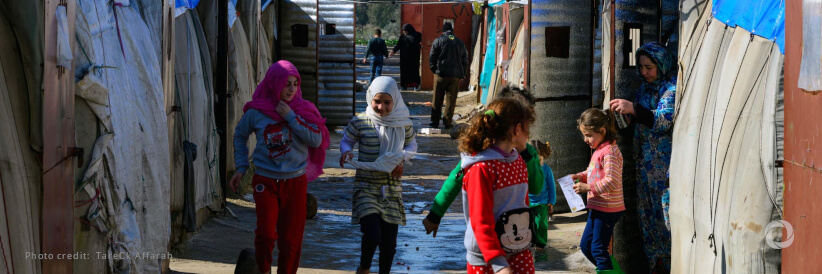As Azraq refugee camp, in Jordan’s northeastern desert, enters its 12th year, a group of aid agencies urge donors to stay the course in supporting the camp and ensure that, as humanitarian aid declines, the camp is prioritised in funding decisions to avoid falling into a humanitarian crisis.
The Norwegian Refugee Council (NRC), Plan International, CARE Jordan, and Action Contre la Faim (ACF) urge the international community to support Jordan in maintaining conditions that allow refugees to make free and informed decisions about their future.
The vast majority of Azraq camp’s 40,500 residents remain dependent on aid. While the political transformation in Syria in December brought new hope for a solution to Syrians’ displacement, initial enthusiasm among refugees for a return to Syria this year has been overshadowed by deteriorating security at home. Refugees also reported being warned by friends and relatives who returned about the lack of basic services, housing, or economic opportunities.
Surveys by ACF found that while in January, two-thirds of refugees in Azraq camp planned to return to Syria by the end of the year, this had dropped to one-third by April.
“We have observed a significant shift in attitudes among surveyed refugees, with increased concerns about returning to Syria in April 2025 compared to the more hopeful sentiments expressed in our January 2025 assessment,” said Hamida Jahamah, Country Director of Plan International Jordan. “Refugees cited serious worries around access to essential services such as healthcare, education, and livelihoods, should they return to areas still facing severe challenges.”
Amy Schmidt, country director of NRC in Jordan said: “Jordan has been a generous host to hundreds of thousands of refugees since the start of the Syria crisis and the Kingdom has committed that any returns to Syria must be voluntary. In order for returns to be truly voluntary, international assistance must be maintained to the most vulnerable communities, such as Azraq camp.”
A study by NRC found that if all humanitarian funding to Azraq camp were to cease, 90 per cent of the camp’s economy would disappear. Opportunities for families to support themselves in Azraq camp are scarce due to the isolation of the camp, surrounded by barren desert, as well as restrictions on people’s freedom of movement.
Camp markets are small and shrinking, especially since the political changes in Syria. Uncertain about the future, shop owners say people have stopped purchasing.
“Many shops in the camp have closed, and others just open to pass the time,” said Mohammad, a refugee and volunteer with NRC supporting camp businesses.
A recent needs assessment conducted by CARE Jordan in the camp has revealed that refugees’ inability to find work to meet basic needs was a major push factor driving people to consider returning to Syria.
Salam, a 24-year-old refugee, has lived in Azraq for 11 years. She got married, had a baby and divorced in the camp. Despite taking several training courses, she hasn’t managed to find a job in the camp.
“Camp life is not the life I dreamed of. Unless you get a scholarship to study, there are no options here. I want to leave the camp and have a home and a job, but our house in Daraa is ruined, and our relatives say don’t come back yet,” she said.
The organization urges the international community to ensure that aid services and assistance in Azraq camp are maintained, as further worsening of conditions in the camp would risk pushing people to return to Syria before they are ready.

